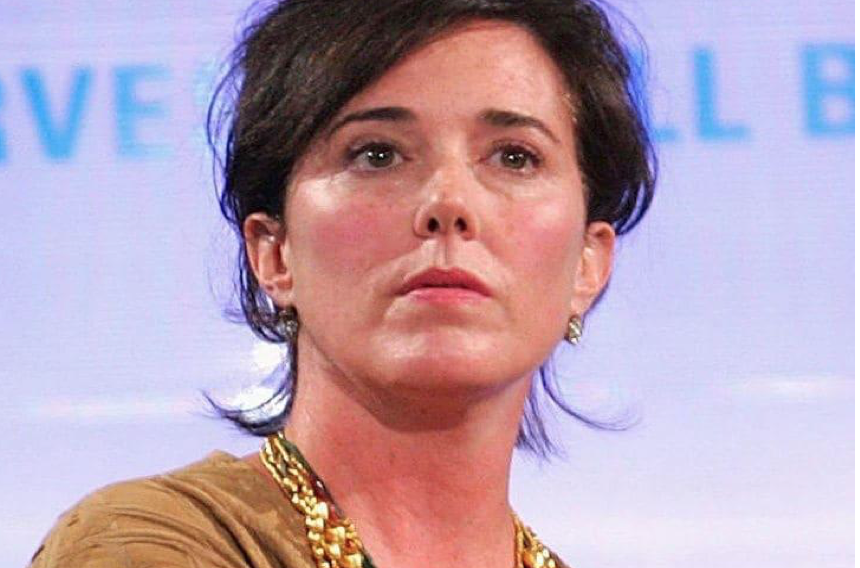DC DISPATCH--The news of a suicide invites reactions of shock, but quickly settles intodismay and confusion.
After all, mental imbalances are rarely linear and logical. When a person reaches the crossroads,where he or she decidesto take theirlife, it's important to find a lifeline that can help them back to equanimity.
Most often, depression causes imbalances or affect a person's ability to accurately assess their environment or circumstances. But circumstances are rarely as dire as the person believes and could be addressed either through medication, counselling or perhaps a friendly listener, but the person has turned inward, hiding their desperation, appearing normal to most observers.
What drives this behavior? Is it genetic (a chemical or hormonal imbalance), event driven, or does it boil down to inherent fragility?It can be a combinationof all three or standalone, but for some reason our society believes that fame & wealth can protect people intent on ending their lives from this debilitating condition. Typically, the eventual death by suicide has been preceded by a series of unsuccessful attempts.
The recent deaths by hanging of both Kate Spade and Anthony Bourdain within one week of each other have reminded us thatcelebritydid not console or immunize them.Though one hailed from the world of fashion and the other from haute cuisine, they had many experiences in common. Both werefamous personalitiesand had experienced varying degrees of super stardom throughout their illustrious careers. Kate Spade was a renowned fashion designer, who was just 55 years of age. Anthony Bourdain was a celebrity chef and popular food critic who was 61 years of age. Both appeared to be in good health and they led prosperous lives. Many are asking what couldpossibly have led them to commit suicide when they were so famous, rich and successful in their respective careers. They both also left behind young daughters, who will doubtless feel a tremendous sense of loss and guilt as they develop into adults.
Close familial or romantic relationships were obviously not enough to stop either Kate or Anthony from one of the more dramatic forms of suicide. Why not take pills, or alcohol, or a combination of both? It appears that both may have had some familiarity with substance abuse in their lives. Why hanging? Was this an angry message to a husband who had recently left her or to a girlfriend who was photographed with another man in Rome?
Regardless of the circumstances, Kate could have continued to be a successful fashion icon and mother. Anthony had years ahead of him in Parts Unknown, one of CNN’s most highly rated shows and could have been a loving father to his 11-year old daughter. But, something snapped in both cases, they lost their will to live, felt incredibly alone, and became intent on their will to die.
Fame often breeds loneliness. Bourdain apparently had a gruelling schedule, was traveling constantly, moving from hotel to hotel, often alone. While he was seen on TV constantly sharing meals and apparently enjoying good company and exotic food--everyone knew him and considered him a friend--and becoming a knight of the #MeToo Movement, and apparently meeting the love of his life, life was no longer enough. Less is known of Kate, but she was identified by her vibrant colors and constant cheerfulness. Apparently, her family had noted growing signs of distress, but had been unsuccessful in having her seek help.
If both had shared their pain, they might still be alive today and the events which precipitated their deaths might have seemed less dire in hindsight.
It is not only about these two celebrities who were loved and admired by many, but also about thousands of other Americans who, at some point in their lives, think aboutsuicide, consider committing it, or ultimately go through with it. There is the critical need to pinpoint the triggers driving increasing suicide rates in the United States. The WHO estimates that the US has one of the highest percentage increase in suicide rates, and in fact suicide ranks as the 10thleading cause of death in the US. In 2016, nearly 45,000 Americans committed suicide. Numbers of teen suicides have also been rising. We need to find the underlying reasons behind these figures because suicides are plaguing American culture.
Taking a cuefrom these two high profile deaths, it seems that relationships certainly have a huge impact.Somehow, people in pain need to be encouraged to ask for help and should not feel ashamed in doing so. Partners and friends need to be more observant to identify tell-tale signs of despair. Celebrities have the added problem that they do not want to display any vulnerabilities to their fan base or may fear affecting their brand with negative publicity.
The stigma associated with mental health and its treatment needs to be addressed. It is unrealistic to expect that U.S. government or religious institutions can adequately address the problemsofpeople who are going through these difficult times in their lives. Mental health and lack of access to treatmentareexacerbatingthis crisis where stigma eclipses treatment. The high suicide rate in America pinpoints that there is a problem with dealing with mental health. There may be institutions to offer assistance and guidance, support lines, counsellors, and other forms of help. Butthereis clearlya need for a fresh approach.
Mental health needs to be given the same level or importance and treatment as any other forms of critical illnesses and conditions. Mental health needs and warrantsthe attention of an open minded society and the resources that come with it. By diverting our attention to the root of the problem and focusing on early education, coping mechanisms, equal access to treatment, and ways to improve health care, we may be able tomanage to reduce the high suicide rates. More research and a stronger focus on education could lead to more positive results over time.
Sara Corcoran is publisher of the National Courts Monitor and writes for CityWatch, Daily Koz, and other news outlets.)
-cw















